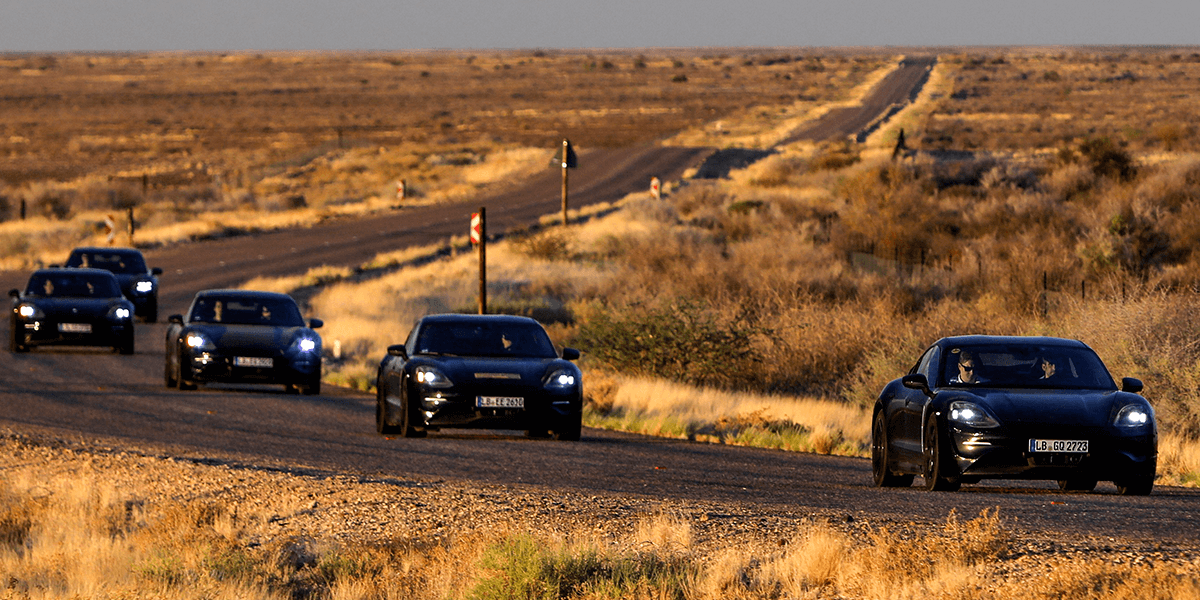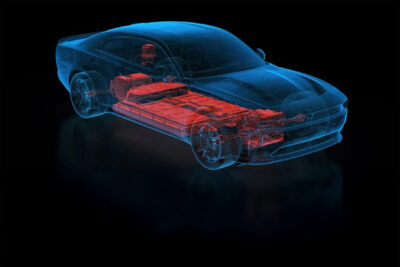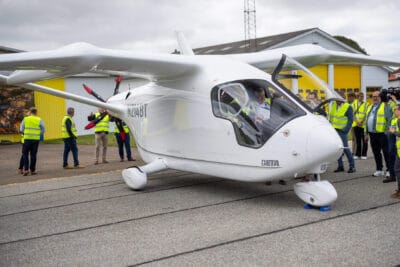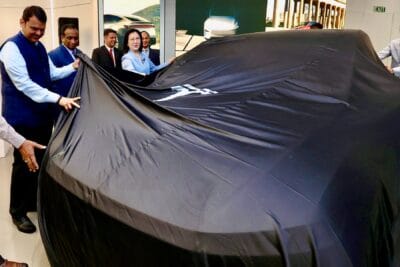Porsche undertaking last tests on Taycan electric car
In September Porsche will officially present the Taycan at the IAA in Frankfurt. At present, a number of near-series prototypes are still on the road – apparently to test the charging behaviour of the new electric Porsche.
The electric car rental company “Nextmove” has photographed six black Taycan cars with light camouflage stickers at the EnBW rapid charging park at the Seligweiler charging station on the A8 north of Ulm. The black electric limousines are hooked up to the charging points there, which offer up to 300 kW charging power. We don’t know whether the Porsche engineers want to test the charging behaviour of the vehicles at such high charging capacities, which are obviously close to series production, or whether they want to avoid connection problems that Audi experienced with their e-Tron.
Porsche #Taycan Invasion am Rasthof Seligweiler❗
Wir freuen uns sehr auf den ersten Tayacan in der Flotte.#Elektroauto#Elektromobilitaet @Tesla @Porsche pic.twitter.com/JAuoeWp2eH
— nextmove (@nextmove_de) July 2, 2019
(translation: Porsche Taycan invasion at Seligweiler service station. We’re looking forward to having the first Taycan in our fleet.)
However, now it has become clear that the first vehicles hooked up to the EnBW chargers in Seligweiler cannot draw the full 300 kW. Apparently, the charging power will initially be 250 kW. The announced 350 kW will then be possible from 2021.
It has always been clear that there would be different versions of the Taycan. Now more details have come to light: The cheapest of the four planned variants is expected to cost around 90,000 euros. For this price, owners get a battery with a capacity of 80 kWh and an electric motor at the rear axle that is supposed to deliver between 240 and 280 kW. Possible designation: Taycan S.
The Taycan 4S also has the 80 kWh battery, but with one electric motor each at the front and rear axle with a system output of between 320 – 360 kW.
Both the Taycan Turbo and Taycan Turbo S have a battery with a capacity of 96 kWh that consists of 34 modules, each made up of 408 cells from LG Chem. The top model is powered by two engines with 160 kW on the front axle and 300 kW on the rear axle. The recuperation power should be 250 kW and therefore as high as the initial charging power on an HPC column.
According to Porsche, the Taycan has a top speed of over 250 km/h. It accelerates from zero to 100 km/h in significantly less than 3.5 seconds and reaches the 200 km/h mark in less than twelve seconds. The German carmaker revealed these details during a demo run in Shanghai but did not specify which model this was. We suspect this was the Taycan Turbo S.
The Taycan will bear one main difference to other electric cars: Porsche did not attach great importance to One-Pedal-Driving, so the Taycan has very little automatic recuperation, but particularly so when using the foot brake. “A sports car should not decelerate when you take your foot off the accelerator, but should continue to roll on with as much momentum as possible,” said Taycan project manager Stefan Weckbach.
Apparently, Porsche has increased its production capacity once again. The new production facilities at the main plant in Zuffenhausen are initially designed for 60,000 units per year – so far it has been said that annual production could be doubled from the 20,000 units initially planned to 40,000.





2 Comments